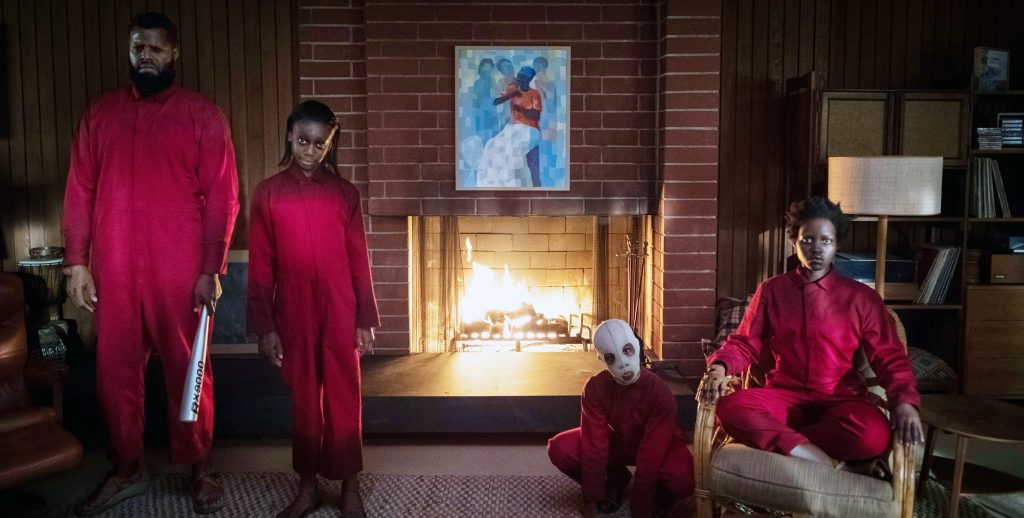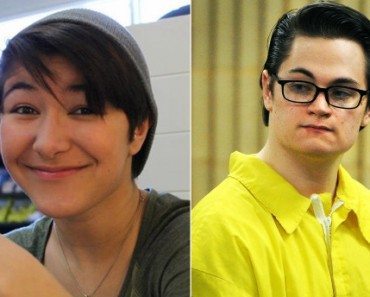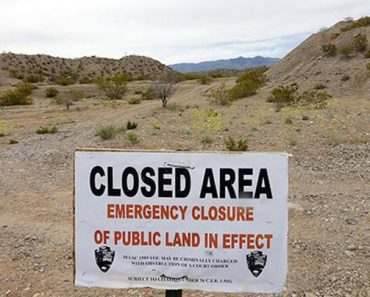
Jordan Peele’s Us broke box office records this weekend with a $70 million start – which means a lot of people saw his terrifying mindf–k of a film and are probably right now going, “huh?” Because ‘Us’, unlike most mainstream horror movies, has just so much on its mind. Here we’re going to try and answer a bunch of questions you might have about it, so if you haven’t seen Us, be warned: There is a ton of spoilers ahead.
Where do we even begin? With the big twist that Adelaide (Lupita Nyong’o) isn’t actually Adelaide but one of the Tethered? And that rather than protecting her family during the movie, she’s trying to keep her past secret? Or with a breakdown of why Peele chose Hands Across America as a pivotal theme? Maybe with a flick through the Good Book to Jeremiah 11:11? And what’s up with all the dang rabbits!
Theme, Tethered, and Twists
Back in 1986, Hands Across America was a charity event and campaign that was staged on Sunday May 25, that saw some 6.5 million people hold hands and form a human chain across the country (from sea to shining sea, as it says in the ad at the beginning of the film). The way it worked was simple: for a small donation, Americans got a place in the line, and proceeds went to local charities to help the homeless and impoverished. It’s reported that the stunt raised some $34 million.
Why did Peele make it a central theme in his movie? He’s not yet said, but the event has plenty of ties to the film’s themes. There’s the copying/cloning, symbolized by the hand-holding, and the fact that the charity was in support of helping the homeless and underprivileged, the “others” who materialize in Us as the terrifying Tethered. Then there is the fact that ultimately Hands Across America turned out to be something of an empty gesture, a way for those with means to make themselves feel good about themselves but ultimately do little to solve the problem of poverty in the country.
Who the Tethered are is explained, to some extent at least, in two key moments in the movie. There is the fireside chat, in which Red, Adelaide’s double/Tethered, answers Gabe’s (Winston Duke) question, “What are you people?” with a “Once upon a time…” tale that reveals that an entity called “they” created the doubles by cloning the population. More is revealed towards the end of the movie when we see, in flashbacks, how the Tethered lived underground – first as bodies intended to control the above-ground population.
The tethered are a metaphor for, well Us. The obvious point being made in Us is that we are our own worst enemy, so “watch yourself.” Peele said as much in a Q&A following the movie’s premiere at South by Southwest and elaborated in an interview with The Guardian. “We are our own worst enemy, not just as individuals but more importantly as a group, as a family, as a society, as a country, as a world. We are afraid of the shadowy, mysterious ‘other’ that’s gonna come and kill us and take our jobs and do whatever, but what we’re really afraid of is the thing we’re suppressing: our sin, our guilt, our contribution to our own demise … No one’s taking responsibility for where we’re at.
Rabbits & Jeremiah 11:11
The rabbits are one of many recurring symbols during the film. Adelaide’s daughter, Zora, wears a shirt with a rabbit on it. She also has a sweatshirt with the word “Thỏ”, or Vietnamese for “rabbit.” There’s a stuffed rabbit in the family cabin. And, of course, the rabbits are hopping around during the film’s underground climax. Then, in one of the final scenes, Jason—after being rescued from the underground—is holding a rabbit.
So, what do they mean?
The film does offer one answer: Red tells Adelaide that the Tethered have been surviving by eating rabbits raw, which is disgusting, but effective, considering how quickly rabbits reproduce.
But there’s a deeper meaning, too.
Often, rabbits symbolize rebirth, which fits with the intentions of the Tethered to start a new chapter living on the surface. But, connecting with Peele’s greater theme of duality, rabbits are often used as test subjects, which represents the lives of these Tethered as an abandoned experiment.
A sign at the park Adelaide sees just before the fateful encounter reads, “Jeremiah 11:11,” referring to the Bible passage that includes the foreboding words, “Therefore thus saith the Lord, Behold, I will bring evil upon them, which they shall not be able to escape; and though they shall cry unto me, I will not hearken unto them.” It’s a warning Adelaide didn’t heed—a prophecy she’s lived with ever since.
Us succeeds at fathoming a world devoid of faith, one where we’re still punished despite our best intentions—and according to that lingering Jeremiah verse, it’s inescapable. The movie preys upon what we most covet and visualizes a Judgment Day that is malignant and unforgiving. Regardless of where your faith lies, the movie is an unsettling tale that reminds us that at the end, we can no longer rely on ourselves or our preoccupations for redemption. But even as the central characters are enveloped by doom, Peele provides a haunting image of a black family that is both unsuspecting and frighteningly unfuckwithable.



![‘Game of Thrones’ Season 6 Teaser Reveals a Bit TOO Much [Spoiler Alert!] ‘Game of Thrones’ Season 6 Teaser Reveals a Bit TOO Much [Spoiler Alert!]](https://suggestive.com/wp-content/uploads/2016/02/11111111111111111111111111-9-e1455547971670-370x297.jpg)





